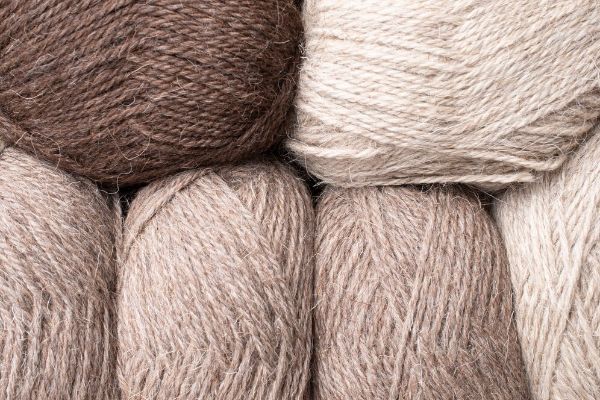When it comes to luxurious comfort and warmth, two names stand out in the world of textiles: merino wool and cashmere. These materials have long been adored for their softness and insulation, but they have distinct characteristics that set them apart. If you’ve ever found yourself debating between merino wool and cashmere, fret not!
In this article, we’re diving deep into the cozy showdown to help you make an informed choice that’s tailored to your preferences and needs. So, snuggle up and let’s unravel the wonders of merino wool and cashmere.
Merino Wool: Softness with a Side of Durability
Merino wool is derived from the fleece of merino sheep, known for their fine and soft wool. It’s like a warm hug from Mother Nature herself. Here’s what you need to know about this woolly wonder:
1. Softness and Comfort: Merino wool is famous for its exceptional softness. Its fibers are finer and smoother than traditional wool, making it feel gentle against the skin and causing minimal irritation or itchiness.
2. Temperature Regulation: A remarkable feature of merino wool is its ability to regulate body temperature. It’s a natural insulator, keeping you warm in colder weather and wicking away moisture to keep you cool in warmer conditions.
3. Breathability: The breathability of merino wool is a blessing. Its fibers have a high moisture-wicking capacity, allowing sweat to be absorbed and evaporated, ensuring you stay dry and comfortable even during physical activities.
4. Odor Resistance: Merino wool has natural antibacterial properties, meaning it resists odors and can be worn for longer periods without developing unpleasant smells.
5. Durability: Merino wool is a sturdy choice. Its fibers are more robust than other types of wool, so garments made from merino wool tend to hold up well over time.
Cashmere: The Pinnacle of Luxury
Cashmere is a luxury fiber harvested from the soft undercoat of cashmere goats. It’s known for its unparalleled softness and warmth, creating a sensation of pure indulgence. Here’s what makes cashmere so coveted:
1. Unmatched Softness: Cashmere is often touted as one of the softest and most luxurious fibers available. Its delicate and silky touch is unparalleled, making it a popular choice for high-end garments.
2. Lightweight Warmth: Despite its lightweight nature, cashmere offers exceptional insulation. It keeps you warm without the bulk that other materials might have.
3. Hypoallergenic Qualities: For those with sensitive skin, cashmere is a blessing. It’s less likely to cause irritation or itching, making it a suitable option for even the most delicate skin types.
4. Temperature Regulation: Cashmere boasts natural temperature-regulating properties, offering warmth in the cold and breathability in milder weather.
5. Delicate Care: Cashmere requires a bit more care due to its delicate fibers. Hand washing or dry cleaning is recommended to maintain its softness and quality.
Comparing the Two: Merino Wool vs. Cashmere
1. Cost: Cashmere is often considered a luxury material, and as such, it generally comes with a higher price tag than merino wool. Merino wool offers a more budget-friendly option while still providing excellent quality and comfort.
2. Softness: While both materials are incredibly soft, cashmere is often considered the epitome of luxury in terms of softness. However, merino wool is not far behind and offers a softer alternative to traditional wool.
3. Warmth: Both merino wool and cashmere excel in providing warmth without excess weight. Cashmere might have a slight edge in terms of warmth due to its exceptional insulation properties.
4. Durability: Merino wool is known for its durability and resilience, making it a great choice for garments that will see frequent use. Cashmere, while delicate, can still hold up well with proper care.
5. Moisture Management: Merino wool outshines cashmere in moisture-wicking and breathability. If you’re looking for performance wear or activewear, merino wool might be the better choice.
6. Hypoallergenic Qualities: Both materials are generally well-tolerated by sensitive skin, but cashmere is often preferred for those with more delicate skin types.
Merino Wool vs. Cashmere: The Comparison
| Attributes | Merino Wool | Cashmere |
|---|---|---|
| Softness | Exceptional softness | Unmatched softness |
| Temperature Regulation | Natural insulator | Regulates body temperature |
| Breathability | High moisture-wicking capacity | Breathable and insulating |
| Odor Resistance | Natural antibacterial properties | N/A |
| Durability | Sturdy fibers | Delicate fibers |
| Cost | Budget-friendly | Luxury material |
| Warmth | Provides warmth | Exceptional insulation |
| Hypoallergenic | Generally well-tolerated | Preferred for sensitive skin |
| Care | Less delicate care | Requires delicate care |
The Final Verdict: Choose Based on Your Needs and Preferences
When it comes to the merino wool vs. cashmere debate, there’s no clear winner. Both materials have their own set of unique qualities that cater to different preferences and needs. If you’re seeking warmth, softness, and a budget-friendly option, merino wool is an excellent choice. On the other hand, if you’re after unparalleled luxury, softness, and are willing to invest, cashmere is the way to go.
Ultimately, your decision should be based on factors such as the intended use of the garment, your sensitivity to certain materials, and your budget. Whether you choose the cozy embrace of merino wool or the luxurious indulgence of cashmere, you’re sure to enjoy the warmth and comfort these exceptional fibers bring to your wardrobe. So, wrap yourself up and revel in the blissful embrace of your chosen cozy companion!

For over 12 years, I have been testing and reviewing heating technologies that overcome cold weather conditions. In recent years, I have specialized in the heated apparel. I’ve made it my mission to educate people about heated clothing.
